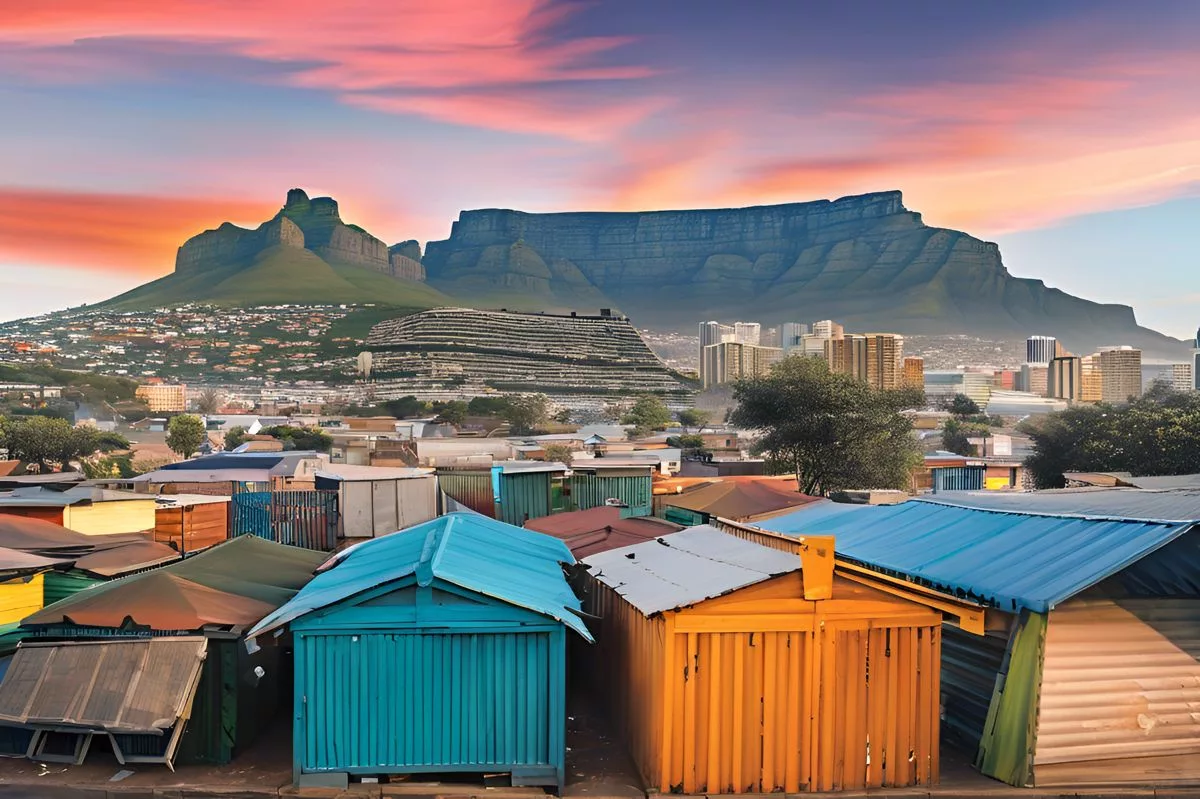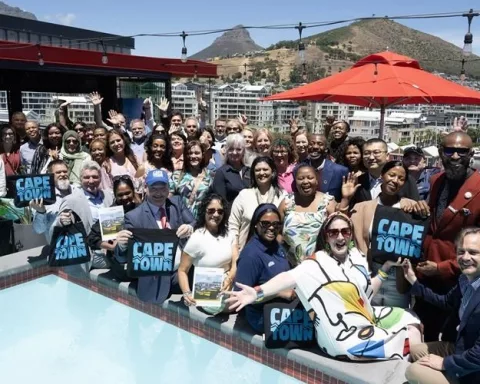The Backyarder Programme in Cape Town is a bright effort to help people living in tough conditions in the city’s backyards. It provides basic needs like water, electricity, and sanitation for those who often get overlooked. While Cape Town shines with beauty and culture, many residents face real struggles in informal settlements. The program aims to lift their living standards, but it also highlights the challenges of helping those on private land. With strong community voices pushing for change, Cape Town dreams of a fairer future where everyone can access the services they deserve.
What is the Backyarder Programme in Cape Town?
The Backyarder Programme in Cape Town aims to improve living conditions for backyard dwellers living on municipal properties. It provides essential services like water, electricity, and sanitation, addressing the needs of marginalized communities and setting a precedent for urban development in South Africa.
Cape Town’s Hidden Struggles: Beneath the Surface
Cape Town, cradled between the iconic Table Mountain and the shimmering Atlantic Ocean, is a vibrant city known for its spectacular landscapes and rich cultural tapestry. However, alongside its famous tourist attractions and celebrated diversity lie the realities of informal settlements, often overlooked in the broader city narrative. These communities, integral to the city’s social fabric, experience precarious living conditions that demand urgent attention and action.
Amidst the city’s historical and cultural complexities, Cape Town grapples with the significant challenge of improving the living conditions of backyard dwellers—residents living in makeshift accommodations on others’ properties. These individuals play a vital role in the city’s dynamic society, yet they often face limited access to essential services and opportunities.
Efforts to address these issues have manifested in the City of Cape Town’s innovative backyarder programme. This initiative aims to improve the living standards of those residing as backyarders on municipal properties, providing them with essential services such as water, electricity, refuse collection, and sanitation facilities. While these services may appear basic, they mark a considerable improvement for many residents who have long been marginalized in urban planning discussions.
The Drive for Change: Expanding the Backyarder Programme
A key figure in this movement is Carl Pophaim, the Mayoral Committee Member for Human Settlements, who recently visited Hanover Park to witness the positive impact of the backyarder programme. Pophaim’s commitment to sustainable urban development is informed by his personal history as a former backyard dweller, lending authenticity and urgency to his advocacy.
Despite the programme’s successes, it is not without challenges. The Municipal Finance Management Act imposes restrictions on using public funds for improvements on private properties, limiting the City’s ability to offer assistance to backyarders on non-municipal land. This legal constraint highlights a broader tension between regulatory frameworks and the pressing needs of underserved communities. However, Cape Town has taken a pioneering role as the first municipality in South Africa to introduce basic services for backyarders on municipal land, setting a precedent for other regions to follow.
The City envisions a future where more resources are allocated to enhancing the living conditions of all informal residents, signaling a shift towards long-term, holistic solutions. Yet, a significant hurdle remains: the low registration rate among backyard dwellers on the City Housing Needs Register. Many of these residents, enduring years of waiting for housing opportunities, remain trapped in a cycle of uncertainty and vulnerability.
Community Advocacy and Call for Action
The social dynamics surrounding backyard dwellers are deeply rooted in Cape Town’s historical and socio-economic landscape. Organizations like the Social Liberals for Backyard Dwellers (SLBD) have emerged, advocating for more profound, systemic change. Through protests and demands for the allocation of unused public land for social housing, these groups highlight the growing frustration within the community and their desire for meaningful progress.
Dialogue with city officials has identified potential areas for development, such as the unused military land in Wingfield and Youngsfield. These discussions emphasize the need for creative, cross-sector collaboration to effectively address the housing crisis. Pophaim acknowledges the legitimacy of the protesters’ grievances and remains committed to finding viable solutions while managing community expectations.
Drawing parallels to historical movements like the Harlem Renaissance, which celebrated African American culture and addressed systemic inequalities, Cape Town’s housing initiatives aim to empower marginalized communities through strategic intervention and engagement. However, the path to sustainable urban development is fraught with challenges. Concerns have been raised that, while the backyarder programme provides necessary services, it may inadvertently sustain a cycle where individuals remain backyard dwellers indefinitely. Such critiques reflect a broader call for social programs that not only address immediate needs but also tackle deeper systemic issues.
Cape Town’s Commitment to a Brighter Future
Amid these challenges, Cape Town remains a city ripe with possibilities. Its rich history of cultural exchange and resilience provides a unique foundation for innovative urban solutions. The City’s determination to expand the backyarder programme across the metro underscores a recognition that sustainable urban development demands inclusivity, adaptability, and relentless advocacy.
As Cape Town confronts the complexities of informal settlements and housing insecurity, it continues to draw on its legacy of transformation and resilience. The backyarder programme, despite its limitations, represents a step toward a more equitable future—one in which all residents, irrespective of socio-economic status, have access to the fundamental services and opportunities they deserve. Through persistent effort and community collaboration, Cape Town aspires to become a model for addressing urban challenges and championing social equity.
FAQ: Backyarder Programme in Cape Town
What is the Backyarder Programme in Cape Town?
The Backyarder Programme is an initiative aimed at improving living conditions for backyard dwellers on municipal properties in Cape Town. It provides essential services such as water, electricity, and sanitation to marginalized communities, addressing their needs and setting a precedent for urban development in South Africa.
Who is leading the Backyarder Programme?
Carl Pophaim, the Mayoral Committee Member for Human Settlements, is a key figure in this movement. His personal experience as a former backyard dweller informs his commitment to sustainable urban development and advocacy for improving living standards for these communities.
What challenges does the Backyarder Programme face?
One significant challenge is the Municipal Finance Management Act, which restricts the use of public funds for improvements on private properties. This limitation hinders the City’s ability to assist backyarders who live on non-municipal land, highlighting a broader conflict between regulatory frameworks and the urgent needs of underserved communities.
How does the Backyarder Programme impact residents?
The programme significantly improves the quality of life for many residents by providing access to basic services that were previously unavailable. However, some critiques suggest that while these services are essential, they may inadvertently perpetuate the cycle of dependency, keeping individuals as backyard dwellers indefinitely.
What efforts are being made to engage the community in the housing process?
Organizations like the Social Liberals for Backyard Dwellers (SLBD) advocate for systemic change and engage in dialogue with city officials. They are pushing for the allocation of unused public land for social housing and are working to highlight community grievances to promote meaningful progress.
What is the City of Cape Town’s vision for the future regarding housing?
Cape Town envisions expanding the Backyarder Programme citywide, with a focus on inclusivity and accessibility. The City aims to enhance living conditions for all informal residents and tackle deeper systemic issues related to housing insecurity, aspiring to become a model for addressing urban challenges and championing social equity.











